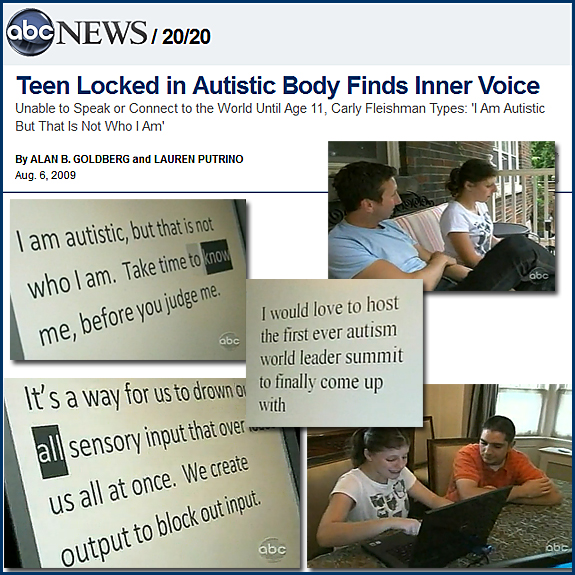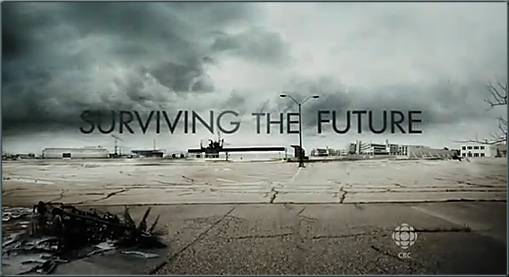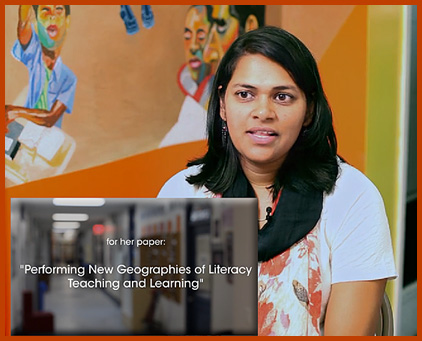15 techno-cultural trends for 2011 — from Pamela Rutledge, Director of the Media Psychology Research Center
.
From DSC:
Again, my thanks to Mr. Joseph Byerwalter for this amazing item.
How can words describe this? I’m not sure they can…but the words/feeble attempts that come to my mind are:
- Perseverance
- Patience
- Hope
- Love
- Success
- Pain can reach to the heavy depths of human existence
- Joy can rise up to the highest heavens
- Look for the invisible, not the visible
- The human body and mind is amazingly complex
- The love of a father and mother can be enormously strong and powerful
- “Don’t judge a book by it’s cover”
I stand in awe of families and people like this; they humble me, yet again.
The article behind the above video can be found at:
http://abcnews.go.com/2020/MindMoodNews/story?id=8258204&page=1
Education-related quotes from:
Poverty: ending the cycle
A 36-year study by Concordia University looks at the cycle of poverty through three generations of Montrealers
The third generation, growing up right now in this technological society, has no bright future without high school, Serbin says.
“Lack of education causes huge barriers, and these kids have a lot farther to go than others,” she says, “because they come from backgrounds with little education and stimulation.”
So is it any wonder that the dropout rate isn’t budging? Serbin asks.
“(Premier Jean) Charest talks about parents providing support, which is great. But how do you enable parents to do that?”
We need to teach parents the skills and offer them programs and support, so they in turn can support their children academically, she says. If poverty places parents in acute stress, how is it possible for them to help their children without outside support?
From DSC:
To me, this begins to get at the heart of the matter of education reform — helping develop stable, solid families with parents that actively support the education of their children.
It’s tough — if one was never taught the importance of education, how does one acquire that perspective? We need to help parents build a respect for education. But I realize that when a person is out there just trying to get by at all, it’s hard to worry about education. That’s why next year, I hope to begin offering a program on developing digital literacy to those children who come out of a background of significant need. I want to help them identify, develop and use their passions.
.
“Surviving the future is an unsettling glimpse into the human psyche right now, as our culture staggers between a fervent belief in futuristic utopian technologies on the one hand, and dreams of apocalyptic planetary payback on the other. Thought provoking and visually stunning, Surviving the Future looks at the stark and extreme choices facing our species as we prepare ourselves for the most challenging and consequential period in our history.”
— from http://www.cbc.ca/documentaries/doczone/2010/survivingthefuture/
.
As seen as CBC-TV on Thursday Oct-21-2010
.
— originally from http://geraldcelentechannel.blogspot.com/2010/11/surviving-future.html
From DSC:
Although I don’t agree with many things in this piece, it’s important to reflect upon some of the sometimes exciting and sometimes disturbing things in this piece. Looking at some of the enormous challenges and potential directions ahead of us this century, it’s all the more important that our hearts are hearts of flesh, not hearts of stone!
From DSC:
First of all, I got this item from:
One Facet of the Future of Educational Publishing — by Jeff Frank
I really enjoyed watching the Strage Prize video, and it led me to think more about the relationship between online video and the publication of educational research. In my role as Managing Editor of the Teachers College Record, I read a very large number of qualitative and ethnographic studies. While the best of these papers give the reader a strong sense of the subjects and the study location (and the author/researcher), after watching the 2010 Strage Prize video, I was fascinating by how much this video added to my understanding and appreciation of Lalitha’s paper.
…
I think having the two together–the written work and the video/podcast–adds something of unique value. I hope more educational researchers and publishers experiment with these kinds of paired works, because I think they offer readers a wonderful educative experience.
Side note from DSC:
Think interactive, multimedia on an iPad sort of device.
.
Which led me to:
Strage Prize 2010 — by Gary Natriello | October 8, 2010
This video features the work of Lalitha Vasudevan and her paper, “Performing New Geographies of Literacy Teaching and Learning.” The paper focuses on the literacies and digitally mediated lives of youth, and was published in the July 2009 issue of English Education.
The video’s production and publication is supported by the Strage Junior Faculty Prize. The Prize was established in 2009 by Teachers College alumna Alberta Strage and her husband Henry to recognize junior faculty achievement. Alberta also serves on both the President’s Advisory Council and the International Advisory Council for Teachers College. We appreciate both their generosity to Teachers College and support for the work of our junior faculty.
The Prize supports the production of a web video to highlight original and innovative work of a junior faculty member at Teachers College. All currently untenured members of the faculty in tenure-line appointments are eligible to compete for the prize by submitting an article, book chapter, paper, or other original product appearing during the previous year.
Congratulations Professor Vasudevan!
“With this in mind, here are a few sites that feature cognitive psychology podcasts, research, articles and news. I’m even sneaking in a few brain science sites for the true believers.”
“And just in case you’re new to this field, cognitive psychology is the discipline that examines our mental processes, such as attention, perception, memory and learning. Cognitive psychology uses an information-processing model to explain mental operations in computational terms. Your resources are below. Enjoy.”













